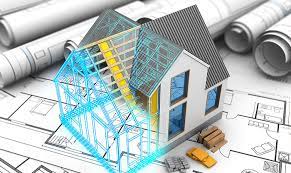Accurate residential estimating is crucial for successful home improvement projects, renovations, and construction jobs. Without a comprehensive understanding of material costs, labor rates, and other expenses, homeowners and builders frequently underestimate their budget or overlook essential expenditures.
This often leads to delays in completion and possibly even going over budget. With the right knowledge, residential estimating can be performed accurately and efficiently. Here, we provide a comprehensive guide to the fundamentals of residential estimating and help you understand how it can be used to save time and money in your next project. Let’s get started.
Key Aspects of Residential Construction Estimating:
In order to accurately estimate the cost of a residential construction project, there are many key aspects that need to be addressed. These include:
Materials Costs:
The cost of materials will include everything needed for the project such as lumber, hardware, fixtures, paint etc. It is important to factor in any associated bulk discounts and shipping costs when calculating the cost of materials.
Labor Costs:
Labor costs will include all the man-hours required to complete the project, as well as any subcontractors or personnel hired for specialized tasks. Make sure to factor in not only the hours worked but also any insurance, taxes, overhead expenses related to labor costs.
Equipment Costs:
The cost of renting equipment such as excavators, backhoes, and cranes needs to be factored into the budget. There may also be additional charges for fuel or other materials associated with operating these machines.
Permit Fees:
Many jurisdictions require permits and inspections for a variety of construction work. Make sure to factor in the cost of these fees as they can add up quickly.
Site Condition:
It is important to take into account any existing site conditions that could affect the cost of a project. This includes things like utility access, soil type, surrounding terrain, and any other features that may need special attention when estimating the cost of a job.
Design Complexity:
The amount of time needed for design and engineering can vary greatly depending on the complexity of a project. Make sure to factor in any additional costs associated with design, such as hiring an architect or engineer.
Construction Schedules and Time Frames:
Inaccurate scheduling is one of the leading causes of projects going over budget. Make sure to factor in the expected time for each task and consider any delays that could arise due to weather or other external factors.
Insurance Policies:
Having proper insurance coverage is essential for any construction project, especially if subcontractors are involved. Make sure to factor in the cost of these policies when calculating project costs.
Overhead and Profit:
These costs are often overlooked when estimating the cost of a project. Make sure to factor in any overhead costs such as office supplies, equipment rentals, and other general expenses that will be associated with the project. Additionally, a reasonable profit margin should be included to account for unexpected expenses or unforeseen delays.
Benefits of Residential Construction Estimating:
Residential construction estimating is essential for successful projects due to following reasons:
Accurate Estimates:
Accurate estimates are essential for residential construction projects, as they allow contractors to accurately plan and budget for the project. Estimating software can help to ensure that estimates are accurate by taking into account all of the materials, labor costs, and other expenses associated with the project. This helps to ensure that contractors don’t overspend or underestimate what is needed for the job.
Streamlined Process:
Using residential construction estimating software can also streamline the process of estimating and bidding on projects. By having all of the data in one place, contractors can quickly create estimates without having to manually enter data or search through multiple sources. This saves time and allows contractors to focus on more important tasks such as finding new clients or managing existing projects.
Improved Efficiency:
Residential construction estimating software can also improve efficiency by reducing errors and eliminating redundant tasks. For example, many programs offer automated features such as auto-fill forms which reduce manual data entry and save time. Additionally, some programs offer automatic calculations which help to eliminate calculation errors due to human error.
Cost Savings:
Using residential construction estimating software can also lead to cost savings by providing accurate estimates that help contractors avoid costly overruns and delays due to inaccurate estimates or miscalculations. Additionally, many programs offer features such as automatic pricing updates which help contractors stay up-to-date on current material costs so they don’t overpay for supplies or equipment when bidding on a project.
Increased Profits:
By streamlining processes and eliminating errors, residential construction estimating software can also help contractors increase their profits by allowing them to bid on more projects in less time while still delivering high-quality results at competitive prices. Additionally, some programs offer features such as automated invoicing which allows contractors to easily generate invoices quickly after a project is completed, helping them get paid faster so they can reinvest their profits back into their business.
Improved Customer Satisfaction:
Finally, using residential construction estimating software can also improve customer satisfaction by providing accurate estimates that meet customers’ expectations while also staying within budget constraints set by the customer. Additionally, some programs offer features such as customizable reports which allow customers to see where their money is being spent throughout the course of a project so they have greater transparency into how their money is being used throughout the process.
Effective Tips For Working With a Residential Estimator:
Here are some tips for working with a residential estimator to ensure the best outcome:
Set Clear Goals and Expectations:
Before beginning a project, make sure to clearly define your goals and expectations with the estimator. This will help them understand what needs to be done in order to create an accurate estimate that meets your needs.
Get Multiple Estimates:
It is always a good idea to get multiple estimates from different estimators so you can compare and contrast the bids. This will help ensure that you are getting the best deal for your money.
Communicate Your Budget:
Make sure to communicate your budget up front so the estimator can factor it into their calculations. This will help them create an estimate that fits within your budget constraints.
Ask for Details:
When reviewing estimates, make sure to ask for details such as line item costs and supplier information so you can understand exactly what is being priced and where the money is going. This will help provide greater transparency into the project cost breakdown.
Negotiate:
Don’t be afraid to negotiate on estimates if there are certain aspects that you feel could be improved upon or adjusted to fit your budget. This is a negotiation process and the estimator should be willing to work with you in order to meet your needs.
Review Contracts:
Before signing any contracts, make sure to thoroughly review them and understand all of the terms and conditions. This will help ensure that you are getting a fair deal and won’t be taken advantage of during the project.
Get Insurance:
Lastly, make sure to get insurance for any subcontractors or suppliers involved in the project. This will protect you from potential liabilities that could arise during the course of the project.
Conclusion:
Estimating residential projects is an essential and ever-evolving industry that requires precision and skill. Residential estimators need to be able to stay current with new industry technology and changing trends. In short, residential estimating is a unique field that demands perseverance and knowledge in order for estimates to be both accurate and profitable. With the proper training, attention to detail and expertise, estimators can craft bids or proposals that will greatly benefit the client while still allowing you to succeed as an estimator.



